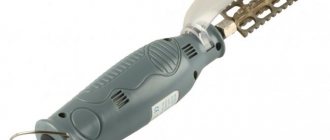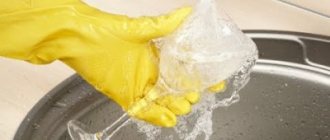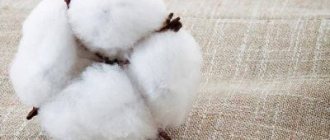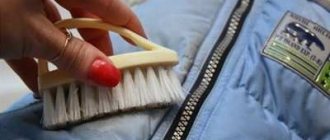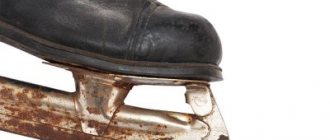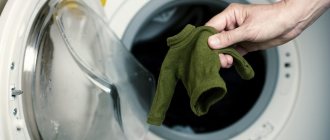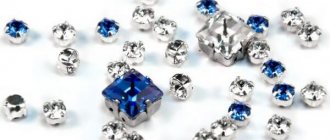A samovar is a water heater that belongs to ancient traditions that our ancestors maintained. It is also found in the homes of modern people. The advantage of the device is its ability to maintain water temperature for a long time, which is absent in other conventional kettles. Due to the widespread use, the question of how to clean a samovar is relevant for many people. It is relatively easy to clean it from plaque and other contaminants, and this can be done with improvised means.
Cleaning the brass surface
A brass samovar is cleaned with ammonia or oxalic acid.
Ammonia
Using ammonia for cleaning a regular and electric samovar:
- lightly moisten the cloth with ammonia;
- wipe the surface;
- rinse.
Oxalic acid
When working with oxalic acid, use gloves:
- stir oxalic acid in water according to the instructions (usually 100 g/3 l);
- moisten the surface of the device with liquid for 5 minutes;
- wash away;
- clean with soda;
- rinse;
- Rub the samovar until shiny with a soft cloth.
Cleaning small parts
Small parts of the samovar can be cleaned by boiling them for 30 minutes in a solution of water and soda ash (½ l:20 g).
Tinning a samovar at home
If you are restoring an antique samovar to boil water in it, be sure to look inside. Do you see a dark film inside that covers the surface of the metal? These are harmful oxides. They need to be removed.
To do this, the samovar is tinned - that is, covered with a protective film of tin. It's easy to do:
- Polish the inner bowl with fine sandpaper and rinse thoroughly.
- Rub the inside of the samovar with soldering acid or ammonia.
- Place the bowl on the fire and melt some soldering tin there. Choose pure metal without impurities.
- Shake the container, distributing the liquid metal along the walls. You can “smear” it with flax fiber, but be careful - the temperature of straightened tin exceeds 230 °C.
- Repeat the procedure until the inner bowl of the samovar is covered with a layer of metal of the same thickness.
In the same way, you can tin any internal surface of the samovar that comes into contact with water.
Cleaning stainless steel surfaces
Stainless steel cookware loses its luster over time, becomes dull, and becomes stained. There are several options for cleaning a stainless steel samovar. The most commonly used are Goya paste and vinegar, available in every home.
Vinegar
Using vinegar is very simple:
- moisten a cotton pad or swab with 9% vinegar;
- wipe the surface.
Paste GOI
In addition to stainless steel, Goya paste can be used to clean copper samovars and brass products. It can not only clean, but also add shine:
- put a little paste on a soft cloth;
- clean the product;
- Remove residues with alcohol.
Important! Apply the paste gradually - after cleaning one area, apply it to another area.
Household products
Household products are also used to clean samovars. The most popular are:
- liquid laundry soap;
- dishwashing detergents;
- soda solution;
- solid laundry soap;
- dishwashing powders.
Some types of samovars cannot be cleaned with abrasives. These include dishwashing powders and baking soda. What materials cannot be cleaned with abrasive particles are described in the sections above.
You can use laundry soap to clean external dirt such as grease stains or food stains. In this case, liquid laundry soap is applied in a thin layer, and a sponge is soaped with solid soap, which is used to treat the surface. Contaminants should be cleaned using hot water or even boiling water - this way they will come off better. Remaining soap should be rinsed off thoroughly.
It is not recommended to clean internal surfaces with laundry soap. They will not be able to remove scale on the walls or heating element. In addition, the smell of soap is difficult to dissipate.
Dishwashing detergents are used in the same way as liquid laundry soap. They are considered the best for cleaning stainless steel samovars. The stainless steel device can be cleaned with dishwashing detergent both outside and inside. It is advisable to choose products that are odorless. Otherwise, it is necessary to leave the samovar open, and also boil 2-3 portions of water after cleaning. Dishwashing detergent will not be able to remove deep layers of scale. It helps remove thin greasy deposits or film on the inner walls.
Soda solution can be used in combination with other ingredients or alone. For independent use, a small amount of baking soda is mixed with a few drops of water. For one teaspoon of baking soda, one teaspoon of water is enough. This mixture is applied to the outer walls of the samovar, the material of which allows it to be cleaned using abrasive particles. Then, using a kitchen sponge or scrubber, baking soda is used to remove dirt from the outer walls. It is not recommended to clean the inner walls with soda, and it is prohibited to use soda on heating elements.
Cleaning the samovar both inside and outside is possible using improvised means. In this case, the material used to make the device and the location of the contaminated parts are important. With timely cleaning, you can extend the service life of even vintage devices for a long time!
An effective samovar cleaner
Internal cleaning
After cleaning the outer surface, you should remove the scale in the samovar, which can significantly distort the taste of the prepared drinks. You can clean the inside of the samovar using the following means.
Sweet sodas
The first option on how to clean the inside of a samovar is to use sweet sodas (for example, Sprite, Coca-Cola, etc.):
- pour soda into the samovar;
- leave overnight;
- pour out;
- clean off dirt with a brush;
- rinse.
Potato peelings
Using potato peelings is an old way to remove scale:
- rinse cleaning;
- pour them into the samovar;
- fill with water;
- boil for 30 minutes;
- leave to act for 2–3 hours;
- throw away the cleaning;
- rinse;
- Clean any remaining dirt with baking soda;
- rinse.
Cleaning the inside, done with scrubbing and baking soda, should be followed by boiling the water again to complete the process.
How to clean a samovar until it shines: general recommendations
Before washing off stains, determine the material of the product, since the processing method and the choice of cleaning agent depend on it. Typically, copper, brass or stainless steel is used for manufacturing . Aluminum and nickel-plated products are quite rare.
Be sure to find out whether the item has historical value (especially for coal-fired samovars). To do this, carefully examine it from all sides. If you find a mark or ancient inscriptions, contact a specialist and find out the cost of such a relic. If the product is not a rarity, clean it and use it for making tea or conducting themed photo shoots.
When choosing a cleaning method and method, consider the age of the product and the material from which it is made
General cleaning recommendations:
- Disassemble the product by unscrewing all handles, stands, valves and decorative elements. This will make the cleaning process easier and help achieve better results.
- Use gentle cleaning products. Do not use compounds with abrasive particles, even if you need to clean an old samovar. Such products leave scratches, which spoils the aesthetic appearance.
- For cleaning, use only soft sponges or cloth. This will not only help avoid damage, but will also make the product shiny.
- Before using any product, test it on an inconspicuous area and observe the reaction. If the treated area has changed color, use a different solution.
The product should be cleaned with protective gloves and a respirator, especially when using aggressive agents - vinegar, ammonia, oxalic acid. This will protect the skin and respiratory tract from burns.
Rules and means for cleaning a brass samovar
Cleaning a brass samovar at home has its own characteristics. Fuel-powered samovars especially need cleaning. Burning coals can heavily smoke the product, which will make it look untidy. Electric samovars do not have this problem, but the scale inside must be cleaned regularly, otherwise the product will fail.
To clean a brass samovar, you can use a special product or use emery. One of the cleaning products is regular toothpaste.
Each housewife chooses how to clean a brass samovar. But the main thing is not to overdo it. Scratches on the outside of the samovar will not only spoil its appearance, but will also damage the coating, which will cause the product to become stained with oxidation over time. And damage to the internal coating makes the samovar hazardous to health. After all, oxidized brass releases harmful substances into the water.
Cleaning the samovar from the outside
Over centuries of use, housewives have come up with many ways to make the samovar proudly shine on the table, and not be an object that would be embarrassing to show to guests.
Here are a few tricks:
- Dilute ammonia in water and rub the walls of the samovar. Let it sit for a while and then rinse with clean water. This will restore the shine to brass surfaces.
- Moisten a piece of cloth with vinegar and rub the sides of the samovar. Then sprinkle it with salt and leave for a while. You can’t rub it, the salt can scratch the samovar. Rinse everything off with water.
- Regular serum gives a good effect. The samovar is moistened with it, left a little and washed off with water.
- If the samovar is running, you can use diluted oxalic acid. The solution is applied to the surface of the samovar, wait about five minutes and rinse with warm water. Then clean the samovar with baking soda. Gloves are used during this cleaning.
- Spread the samovar with toothpaste in those places where there are stains. Scrub stains with a toothbrush and rinse with water.
- If the parts of the samovar are heavily smoked, they can be cleaned with fine-grained sandpaper. Zero is suitable for this. But you must try not to scratch the sides of the product.
- A samovar that is too neglected can be brought back to normal by boiling with vinegar. To do this, take a large saucepan, add water and dilute vinegar in it. Then place the samovar in it and cook it for about three hours. During this time, it must be cleansed both inside and outside.
- Prepare vinegar paste. To do this, mix vinegar with flour to form a paste. Spread it on the samovar and leave for half an hour. Then everything is washed off.
- A good effect is obtained when using soda and lemon. Soda is diluted with water and rubbed on the samovar. After 20 minutes, wipe the surface with lemon slices. Leave for another hour and wash everything off.
- You can use special tools. For example, Metalin. This is an acid-based product and must be used with gloves.
Oxalic acid is a remedy for a brass samovar.
After cleaning in any way, the samovar must be thoroughly wiped with a soft cloth. It is important to do this before it dries itself, otherwise water marks may remain on it.
Cleaning the samovar from scale inside
With prolonged use, the question will certainly arise of how to clean a brass samovar from scale inside. At home, you can deal with scale like this:
- Potato peel. The inner container is filled with it and filled with water. Then heat the samovar to a boil and boil for about half an hour. After this, leave the peel in the samovar for several hours, or even a day. The peel is removed and thrown away, and the samovar is washed with water and soda.
- Regular Coca-Cola easily copes with scale. It is poured into the samovar and brought to a boil. Then leave for half an hour, drain and wash with baking soda.
- Citric acid works well to remove scale from any electrical appliance that uses water. Samovars are no exception and can be cleaned well using this product. You need to dissolve several packs of the substance in cold water and pour it into the samovar so that the water completely covers the scale. Per liter of water you need about 50g of acid. Boil the samovar and leave for several hours, depending on the degree of contamination. Then drain the water and rinse the samovar with clean water. If necessary, the procedure can be repeated.
- Vinegar. It is diluted with water in a ratio of 1:3 and boiled in a samovar for several minutes. Then leave for several hours and drain. After such cleaning, you need to rinse the samovar thoroughly with clean water and boil water in it several times to remove the smell of vinegar.
- You can clean a brass home samovar using chemicals. They can clean the samovar both inside and outside. But they must be selected specifically for food purposes. You cannot use the same products for the washing machine and for the samovar.
Scale is easily cleaned if you clean it regularly and do not let the samovar get to such a state that no folk remedies can cope with it. In this case, chemical agents are used.
Tips for caring for other materials
Their cupronickel products are susceptible to dark-colored oxide. Therefore, special means are used to care for a cupronickel samovar, incl. napkins. Such gels and liquids contain a substance that covers the samovar with a film. In addition, to clean such products, you can use classic dishwashing detergent. It is important that it does not contain chlorine or small powdery particles.
Cleaning a nickel-plated samovar is easy, because... this material does not oxidize. A simple and quick product care product is dishwashing detergent.
But it is not recommended to use aggressive acids, because... dishes lose their shine.
To polish a samovar with a chrome surface, the use of soft abrasives is allowed. If the stains are old, then use ammonia (30 g), diluted in tooth powder (15 g) with the addition of water (50 g). You can add shine using wax compounds.
Polishing a samovar with your own hands
To make the samovar shine, complete the last step - wipe the surface with a soft cloth with lint, which will do the job perfectly.
Egg whites and sodium hydrochloride will help restore the former beauty of a metal device.
The samovar is a true rarity of our time, so take care of it like the apple of your eye. Treat it carefully, with care, with trepidation, so that it will serve you for quite a decent period of time!
Delicious tea from a samovar that exudes a pleasant aroma - let it create an atmosphere of comfort and harmony in your home!
Features of operation and prevention of contamination
In a brass samovar, tea is prepared in the same way as in any other samovar. The main condition is that the place where the samovar is installed is safe and comfortable. Measures must be taken to ensure fire safety and avoid burns.
In order for the samovar to serve for a long time, you need to follow these rules:
- A heated samovar should not remain empty, otherwise the inner tube will quickly wear out and the unit will become unusable.
- Soot from coals must be cleaned immediately after use. This makes it easier to remove and there is no need to resort to aggressive cleaning.
- Do not keep water in the appliance between uses. This causes the inner surface to deteriorate.
- It is better to use filtered water to make tea. It produces less scale.
- It is useful to polish the outer surface of the samovar with a special paste 3-4 times a year.
Prevention of a brass samovar includes the following: a heated samovar should not remain empty.
If these rules are followed, the samovar will sparkle clean to the delight of the hostess and treat guests to delicious tea.
Folk recipes
How to descale a samovar using natural products? Everything is very simple. Fans of folk remedies recommend cleaning keratinized walls with lemon, potato peels or apple peelings.
It should be noted that this method is less effective than the previous ones, and the result will be positive if the plaque is not old.
The use of filtered water and timely cleaning will ensure a long service life, and the samovar will last for decades.
Preventive measures against scale formation
Scale is formed as a result of high water hardness, therefore, to avoid its formation in the samovar, special water hardness softeners can be installed on the water pipes. It is also necessary to completely drain the water from the samovar after using it, and regular cleaning in order to prevent the deposition of salts on the walls and the formation of scale.
A samovar is not just a device for making tea. This is home warmth and comfort, intimate conversations and a pleasant rest. Regularly descale your samovar, and it will last for many, many years, giving your whole family the opportunity to taste wonderful aromatic tea!
Useful information about samovars to note
Before you start cleaning the samovar, it is recommended to obtain information about how long the ancestor of electric kettles lasted. This can be done in an antique dealer’s shop or look at the stamping on the bottom of the device. Then you should find out the material of manufacture in order to choose the right care product. As a rule, they were made of copper or brass.
Note: before cleaning the outside of the utensils, experts advise disassembling the device, i.e. remove the tap, stand, handles and other elements. Accessories must be cleaned separately.
In addition to my great-grandfather’s samovar, modern products made of stainless steel are now in use. It is noteworthy that antique kitchen utensils are held in high esteem by collectors. However, regardless of the material from which it is made, the device requires systematic maintenance. So, the brass product is looked after weekly. Otherwise the material will become dark.
Nickel-plated utensils are subject to delicate care. Therefore, chemicals are used with caution. It is recommended to familiarize yourself with the composition of the product, otherwise the product may be damaged.
Stainless steel products should not be cleaned with abrasives or harsh chemicals.
How to prevent scale from appearing
If a white coating constantly appears in your samovar, it means the water is too hard. It contains a lot of mineral salts, and believe me, this is not “Essentuki” at all. If you drink such water constantly, your teeth will deteriorate and problems with your stomach, liver and kidneys will begin. To prevent this from happening:
- Buy clean bottled water.
- Install a quality water filter.
Inexpensive models remove only mechanical contaminants: fine suspension, rust, tiny particles of debris. But you need a softening filter or reverse osmosis filter. Such models are more expensive and more difficult to install.
Methods for cleaning the surface of a samovar
Like any long-term device, the samovar requires maintenance. And if this happens in a timely manner, the ancient and at the same time modern “miracle of technology” will always be in working order, delighting with its splendor.
- Oxalic acid. One of the most well-known ways to clean a samovar at home is oxalic acid. The solution is prepared from 1 tbsp. l. acid and 1 liter of water. The device is rubbed with the prepared product and after 30 minutes rinsed with warm water. To give a deeper shine, you can additionally wipe the surface with baking soda using a soft, lint-free sponge.
- Ammonia. For this method you need to add 1 liter. water a small spoon of ammonia. Next, rub the device with the resulting mixture and wait 15-20 minutes. To simplify the procedure, it is recommended to wrap the unit with a towel previously soaked in ammonia solution. Contamination will be easier to remove.
- Soap solution. Heat water in a large bowl. You will need a lot of liquid, since the unit should be completely immersed in the solution. Finely chop ordinary laundry soap (at least a third of a piece). Place the soap in the heated water, stirring until smooth. Place the unit in the hot mixture for no more than 10 minutes. After the time has passed, wipe the device well with a sponge.
- Metal Polish. This is a professional product for gentle and effective cleaning of the samovar. You can order in our store.
These methods will help you get rid of grease stains and other contaminants.
Cleaning stainless steel utensils
You can clean a stainless steel samovar using any means, incl. and ammonia, to care for a hob or sink made from this material. Such gels do not contain chlorine, which damages the protective film of the surface. Also, such products should not contain abrasives.
To care for a steel samovar, it is recommended to use mustard powder. The substance is diluted in warm water until a thick mixture is formed. Then apply to the surface with a soft cloth. An old toothbrush with soft bristles will also help with this task.
Raw potatoes also show effectiveness. So, the root vegetable is cut into two parts and the walls of the samovar are rubbed until 100% clean. Rinse off the remaining potatoes with warm water and wipe the product dry.

